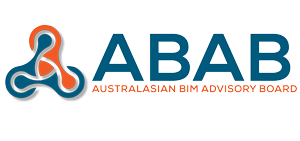ABAB November Meeting:
Concluding a Year of Achievements and Establishing Ambitions for 2025
The final ABAB meeting for 2024 took place on 19th November, serving as a pivotal moment to reflect on the year’s accomplishments and to plan for the future. Throughout 2024, ABAB achieved several significant milestones as the group worked towards its goals of representing a whole-of-industry voice, providing advice on best practices, driving a consistent approach to BIM, and integrating a best practice approach to BIM.
ABAB held four meetings, one of which was in person, and expanded the network to include stakeholders such as the Asset Management Council, the Sustainable Built Environment National Research Centre (SBENRC), and the Australian Constructors Association. ABAB also commenced a review and sought feedback on the ABAB Asset Information Requirements Guide (2018) which will result in an update in 2025. ABAB also established new working groups focused on the critical themes of Terminology and Operations and Maintenance. “2024 has been a landmark year for ABAB. Together, we have advanced industry-wide best practices and continue to forge stronger connections across the sector,” remarked Andrew Curthoys, ABAB Chair.
Turning its focus onto digitalisation and decarbonisation – ABAB emphasised the critical link between digitalisation and decarbonisation, highlighting that effective carbon reduction strategies require robust digital tools and processes, and collaboration. The National Embodied Carbon Measurement for Infrastructure: Technical Guidance was mentioned as providing a nationally consistent methodology for project proposals and baselining embodied carbon, which are crucial for early-stage planning and procurement. The chair reflected, “Our efforts to align the construction industry with sustainability goals underscore our commitment to future-proofing the sector.“
As ABAB turns its attention to 2025, the group is set to focus on supporting asset owners with lower digital maturity, helping them enhance their capabilities and adopt digital engineering practices. A significant priority will be developing Principles to creating a National Data Set, facilitating greater interoperability and collaboration across the industry. Additionally, the agenda on Digitalisation and Decarbonisation will be developed, consolidating ABAB’s expertise and vision for the future of sustainable construction. Active engagement with the National Construction Strategy will remain a cornerstone of ABAB’s approach, ensuring alignment with broader national objectives. “The year ahead presents exciting opportunities to deepen our impact and champion digital transformation across the industry,” the chair emphasised, underlining the importance of collaboration as a driving force for progress.
The meeting concluded with an expression of gratitude from the chair, acknowledging the invaluable contributions of all participants throughout the year. As the group adjourned, best wishes were extended for the end of 2024 and the beginning of 2025, marking the close of a highly productive year.
________________________________________________________________
The Australasian BIM Advisory Board established by the Australasian Procurement and Construction Council (APCC) and the Australian Construction Industry Forum (ACIF), together with the key standard-setting bodies, NATSPEC, buildingSMART and Standards Australia, promotes best practice and consistent approaches to BIM practices, standards, and requirements. ABAB guidance materials are available at: Australasian BIM Advisory Board (abab.net.au).


0 Comments Leave a comment